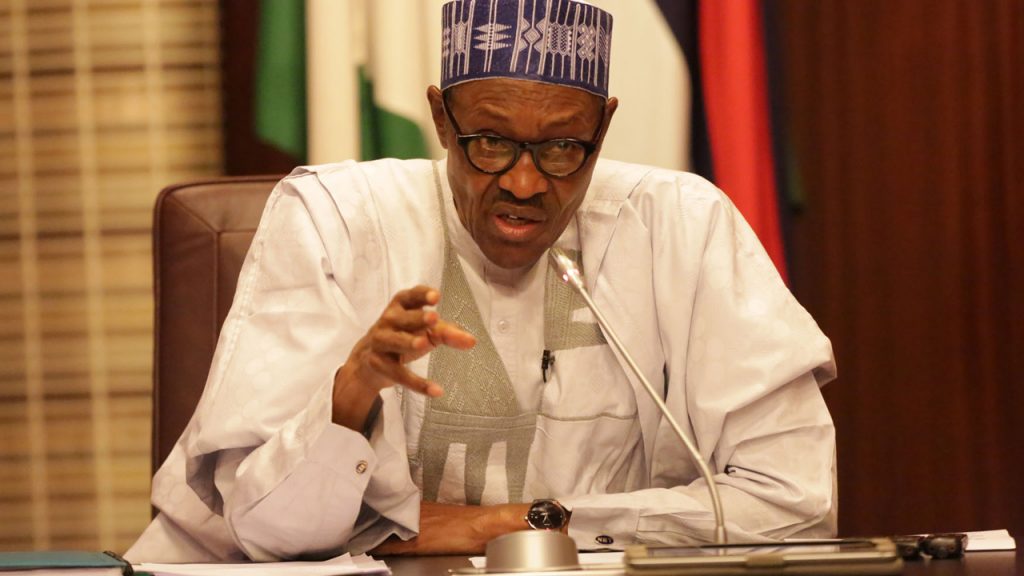Eight months after presenting 2018 budget to National Assembly, President Muhammadu Buhari, Wednesday, signed the 2018 Appropriation Bill into law.
The President presented the budget to the National Assembly on November 7, 2017.
On his Twitter handle, the president who signed the budget in his office at the Presidential Villa, Abuja, said, “a few minutes past noon today, I signed the 2018 Appropriation Bill into Law.”
The Senate and the House of Representatives, had on Wednesday, May 16, passed the 2018 appropriation bill into law.
The lawmakers passed N9.1 trillion, an increase of N508 billion from the N8.6 trillion originally presented to the assembly by President Buhari .
Danjuma Goje, the chairman of the Senate Committee on Appropriation, said the increase of oil benchmark from the proposed N45 to N51 led to the addition of N500 billion.
Goje said that the exchange rate of N305 to a dollar and production of 2.3 million barrels of oil per day proposed by the executive was adopted.
The funds accrued from the increment will be spent on specific projects already earmarked by the committee, Senator said.
Giving the breakdown of the budget in the committee report, he said N42.72 billion will be spent on security, N57.15 billion for health, and N106.50 b billion for the Ministry of Power, Works and Housing.
Other areas are: education, N15.7 billion, Judiciary, N10 billion and Niger Delta Development Commission (NDDC), N44.20billion.
In the final breakdown, the senate passed a 2018 budget of N9, 120,334,988, 225 of which N530,421,368, 624 is for statutory transfers instead of N456,458,654, 074 proposed by the executive.
N2, 203, 835, 365, 699 was budgeted for debt service and N190, 000, 000, 000 was for sinking fund for maturing loans.
A total of N3, 512, 677, 902, 077 was earmarked for recurrent (non-debt) expenditure with a slight increment from N3, 494, 277, 820, 219 proposed and N2, 873, 400, 351, 825 was budgeted for capital expenditure as against N2, 427, 665, 113, 222.
The fiscal deficit of N1, 954, 464, 993, 775 and a deficit to GDP of -1.73 per cent was approved.
Of the total budget, N530billion is allocated for statutory transfers; N2 trillion for debt service; N2 trillion for sinking fund for maturing bonds and N2 trillion for recurrent (non-debt) expenditure.
Establishments expected to get their allocations on first line charge are the National Judicial Council, N110 billion;
Niger-Delta Development Commission got N81 billion; NDDC Outstanding Liabilities on Federal Government of Nigeria, N34 billion; Universal Basic Education, N109 billion; National Assembly, N139 billion and Public Compliant Commission, N7 billion.

